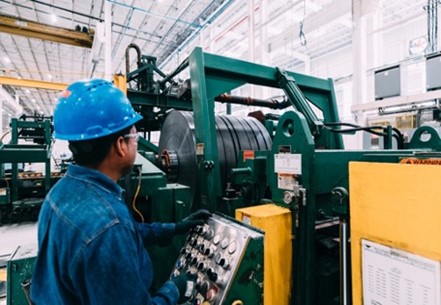Metal Processing for Electric Vehicles: When Steel and Aluminum are Needed
As the electric vehicle (EV) market expands, strategic use of materials like steel and aluminum has become critical in achieving performance, sustainability, and cost objectives. Metal processing for electric vehicles is a complex field where the selection of materials can significantly influence vehicle design and manufacturing efficiency. Both automotive aluminum and automotive steel play pivotal roles, each offering distinct advantages that can enhance or hinder a vehicle’s performance, range, and cost-effectiveness.
The Steel vs. Aluminum Debate in Metal Processing for Electric Vehicles
In the electric vehicle (EV) industry, a competition between steel and aluminum has emerged, with manufacturers weighing the pros and cons of each material for specific applications. Steel, including ultra-high-strength (UHHS) and advanced high-strength steel (AHHS), is valued for its strength and cost-effectiveness. Aluminum, on the other hand, is favored for its lightweight properties and thermal conductivity, making it ideal for battery enclosures and body panels.
As original equipment manufacturers (OEMs) and EV automakers strive to optimize their vehicles, choosing steel and aluminum becomes a strategic decision. This decision is influenced not only by the materials’ inherent properties but also by factors like supply chain management, the capabilities of steel service centers and metal processing centers, and the demands of EV infrastructure. Understanding the benefits and limitations of each material can guide manufacturers in creating electric vehicles that meet the highest performance and sustainability standards.
The Case for Steel
- Advantages of Automotive Steel in Electric Vehicle Manufacturing
Automotive steel, particularly ultra-high-strength steel (UHHS) and advanced high-strength steel (AHHS), offers exceptional strength and durability, making it ideal for structural components that must withstand significant stress, such as the vehicle frame and chassis. In addition to its robustness, steel is generally more cost-effective than aluminum, making it a preferred choice for manufacturers with budget constraints. This is especially important for original equipment manufacturers (OEMs) looking to optimize production costs.
Furthermore, steel is highly recyclable, aligning with sustainability goals and reducing the carbon footprint of vehicle production. The use of galvanized steel also enhances longevity and corrosion resistance in automotive components.
- Challenges of Using Steel in Electric Vehicles
One downside of using steel is its weight, as it is significantly heavier than aluminum. This added weight can negatively affect a vehicle’s overall efficiency and range, making it less ideal for electric vehicles focused on maximizing energy efficiency. Additionally, although advancements in galvanization have improved steel’s resistance to rust, it remains more susceptible to corrosion than aluminum, particularly in harsh environmental conditions.
The Case for Aluminum
- Benefits of Aluminum in Electric Vehicles
Aluminum’s lightweight nature makes it an ideal choice for reducing vehicle weight, improving fuel efficiency, and extending the range of electric vehicles. For EV automakers, automotive […]

 […]
[…]